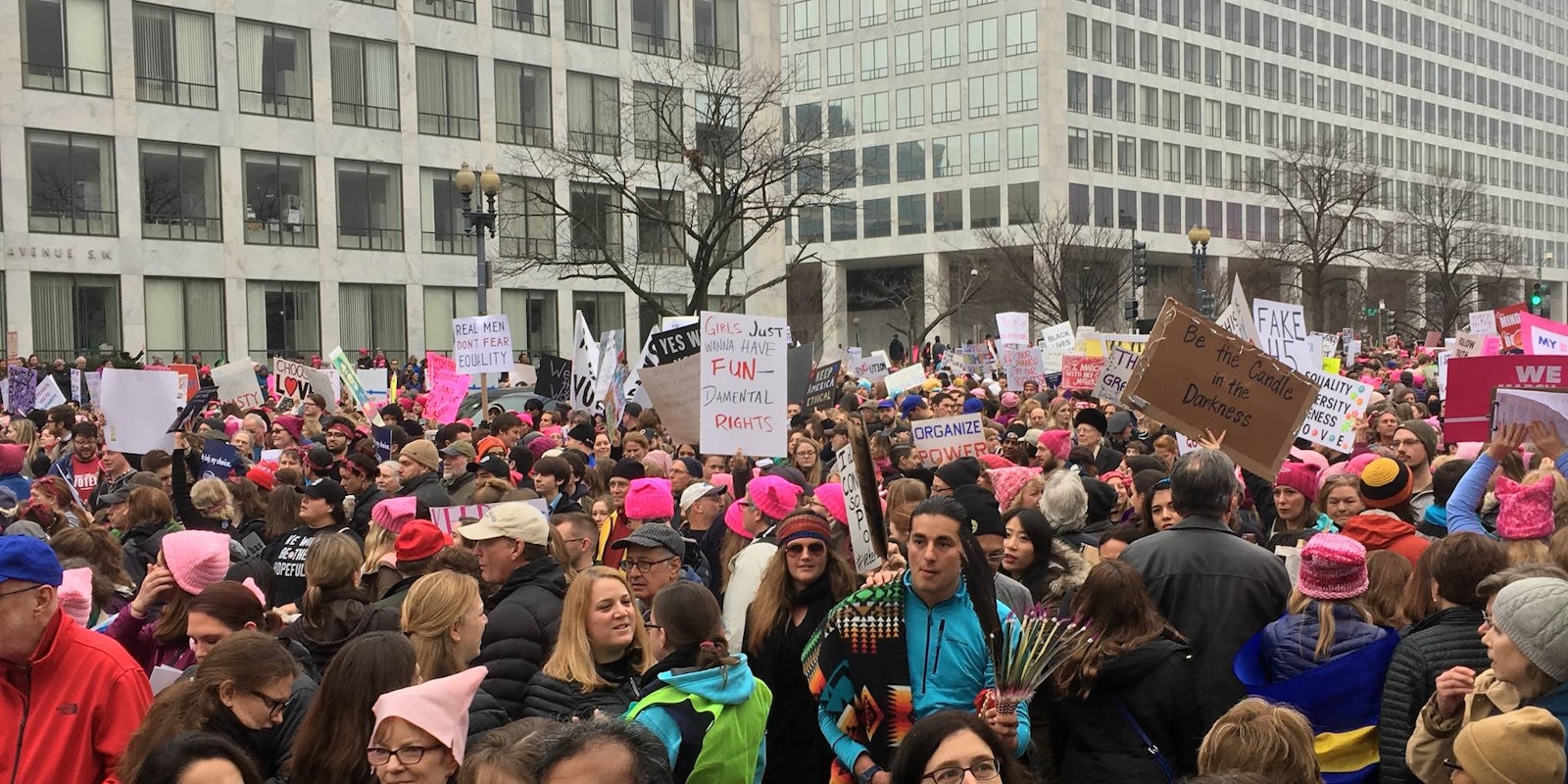Crowd scientists estimate that between 3.3 and 4.6 million people around the world participated in women’s marches on Saturday. And at the rally in Washington, D.C., the conversation was not about how impressive the day’s turnout was, but about how to use that momentum in the days to come. Here are some ways you can ensure Saturday’s turnout turns into a bigger political movement.
Talk to your elected officials
Activists have long known that change is not about a single day of protest, but about sustained pressure and resistance. To that end, the Women’s March on Washington is calling for participants to take 10 actions in the first 100 days of Trump’s presidency, as outlined on its website. The first is to send a postcard to your representatives, telling them “how you’re going to continue to fight for it in the days, weeks, and months ahead.”
At the D.C. rally, Michael Moore encouraged people to not only call their representatives every day, but to consider running for office. He gave out the phone number to the congressional switchboard (202-224-3121), and now every day he is posting action items on his Facebook page. It’s every elected official’s job to represent their constituents’ desires, and they can’t do that if they don’t know what you want.
Research the issues and find other ways to get involved
If you’re going to start calling your representatives, it helps to know how best to communicate the frustrations you have. Resources like the Resistance Manual, the We’re His Problem Now calling sheet, and Indivisible provide scripts for calling senators, tips for attending town halls and district office meetings, and how to start a local action group so you can keep each other accountable.
Many of these sites also offer guides on how to run for local office, volunteering opportunities, and a calendar of other marches to attend. Recurring marches and gatherings can send a message that one large gathering can’t.
Call out lies when you see them
There are many issues being discussed that are a matter of opinion—and then there are facts. That more people attended the Women’s March on Washington than Trump’s inauguration is a fact. That more people voted for Hillary Clinton than Donald Trump is a fact. Recently, the Trump administration has attempted to present “alternative facts” (aka lies). Those need to be pointed out at every possible juncture, so that lies do not become part of our collective political narrative.
Acknowledge your privilege, and use it for good
Let’s face it, the women’s marches were pretty white, and in Portland, Oregon, the NAACP pulled out of the march because it did not do enough to acknowledge racism and other forms of marginalization.
Many people pointed out that protests were peaceful and didn’t result in any arrests, but that’s because the ability to protest peacefully is a privilege not usually afforded to people of color. As writer Jess Zimmerman asked in a public Facebook post, “If the police refrain from laying hands on a mostly white and female crowd, except for high-fives, does their uncharacteristic gentleness stem from support or does it stem from the same root as their violence?”
In an article for the Nation, Natasha Lennard outlines how the black bloc—a group of protesters who aimed to disrupt the inauguration on Friday—used their privilege for action. “Those with a vulnerable immigration status, or arrest records, or good reasons to fear police repression because of the color of their skin, often don’t participate in activities where the risk of arrest is high,” she wrote. “Friday’s bloc was by no means all white, but it was predominantly white. If bearers of white privilege can do one thing, it is put ourselves on the line and take risks where others can’t.”
This could look like, as Twitter user Rue Walker suggested, a group of white women wearing their pink pussy hats marching with women of color “as a visible police deterrent.” Or using one’s privilege, whatever it is, to bring conversations about these issues into spaces where they may not normally exist.
